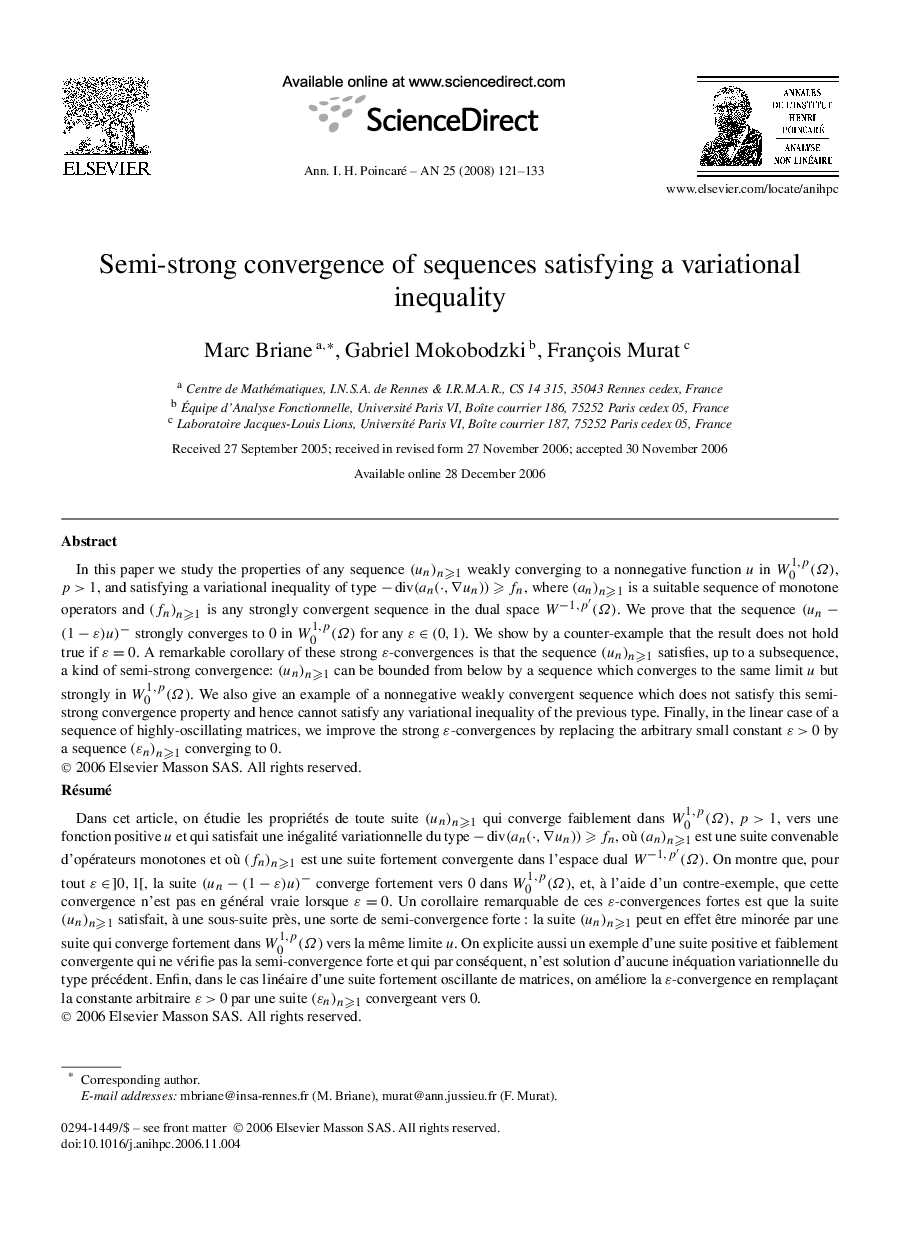| Article ID | Journal | Published Year | Pages | File Type |
|---|---|---|---|---|
| 4604758 | Annales de l'Institut Henri Poincare (C) Non Linear Analysis | 2008 | 13 Pages |
In this paper we study the properties of any sequence (un)n⩾1 weakly converging to a nonnegative function u in , p>1, and satisfying a variational inequality of type −div(an(⋅,∇un))⩾fn, where (an)n⩾1 is a suitable sequence of monotone operators and (fn)n⩾1 is any strongly convergent sequence in the dual space W−1,p′(Ω). We prove that the sequence (un−−(1−ε)u) strongly converges to 0 in for any ε∈(0,1). We show by a counter-example that the result does not hold true if ε=0. A remarkable corollary of these strong ε-convergences is that the sequence (un)n⩾1 satisfies, up to a subsequence, a kind of semi-strong convergence: (un)n⩾1 can be bounded from below by a sequence which converges to the same limit u but strongly in . We also give an example of a nonnegative weakly convergent sequence which does not satisfy this semi-strong convergence property and hence cannot satisfy any variational inequality of the previous type. Finally, in the linear case of a sequence of highly-oscillating matrices, we improve the strong ε-convergences by replacing the arbitrary small constant ε>0 by a sequence (εn)n⩾1 converging to 0.
RésuméDans cet article, on étudie les propriétés de toute suite (un)n⩾1 qui converge faiblement dans , p>1, vers une fonction positive u et qui satisfait une inégalité variationnelle du type −div(an(⋅,∇un))⩾fn, où (an)n⩾1 est une suite convenable d'opérateurs monotones et où (fn)n⩾1 est une suite fortement convergente dans l'espace dual W−1,p′(Ω). On montre que, pour tout , la suite (un−−(1−ε)u) converge fortement vers 0 dans , et, à l'aide d'un contre-exemple, que cette convergence n'est pas en général vraie lorsque ε=0. Un corollaire remarquable de ces ε-convergences fortes est que la suite (un)n⩾1 satisfait, à une sous-suite près, une sorte de semi-convergence forte : la suite (un)n⩾1 peut en effet être minorée par une suite qui converge fortement dans vers la même limite u. On explicite aussi un exemple d'une suite positive et faiblement convergente qui ne vérifie pas la semi-convergence forte et qui par conséquent, n'est solution d'aucune inéquation variationnelle du type précédent. Enfin, dans le cas linéaire d'une suite fortement oscillante de matrices, on améliore la ε-convergence en remplaçant la constante arbitraire ε>0 par une suite (εn)n⩾1 convergeant vers 0.
